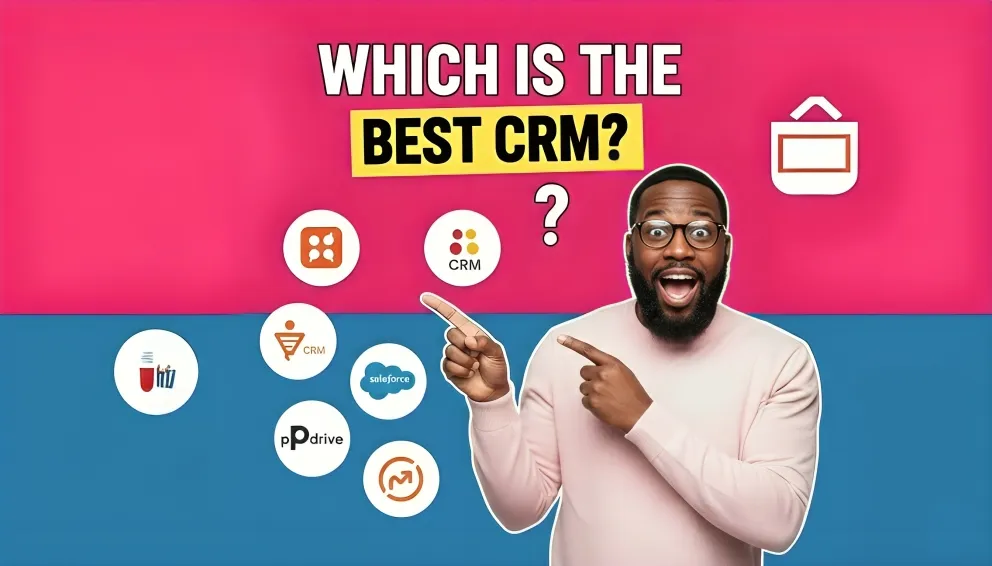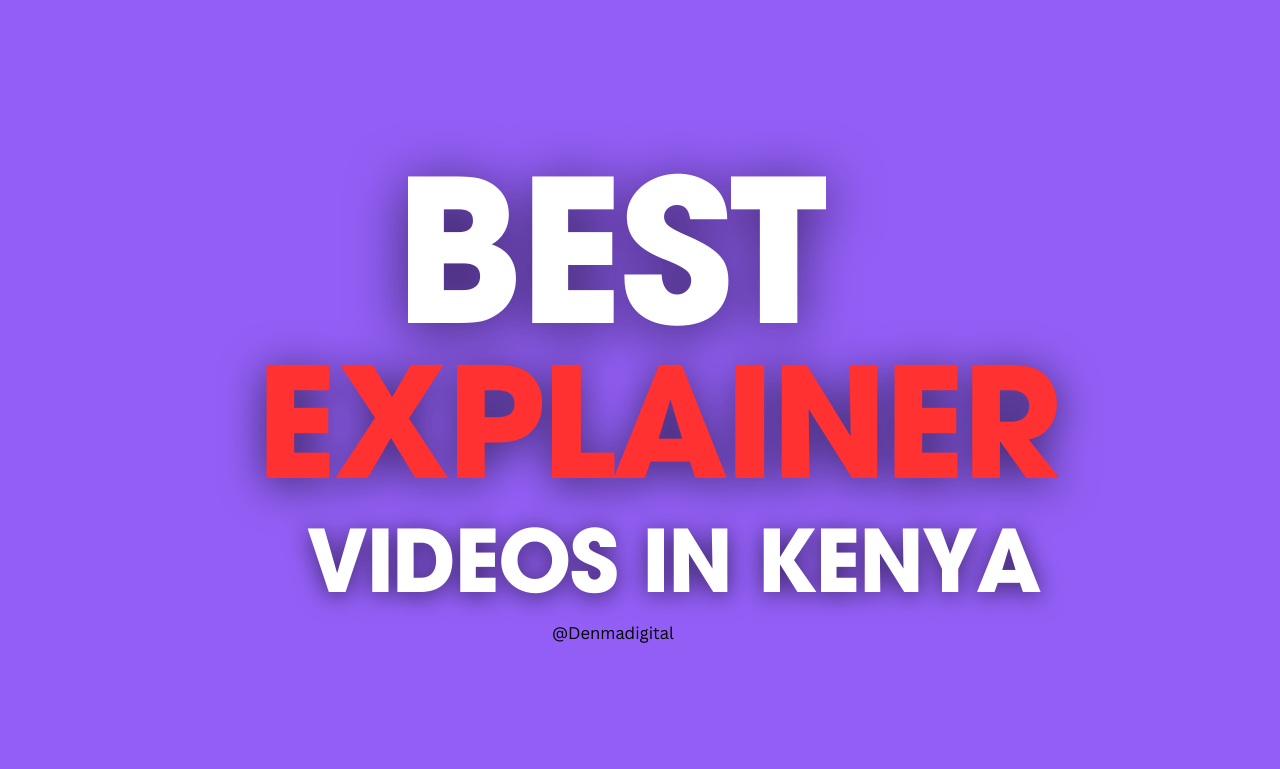Best Email Marketing Software 2026 (Tested and Reviewed)
When I Realized My Email List Wasn’t Working Until I Found the Right Best Tool
There was a time when I thought growing an email list was enough. I had hundreds of subscribers, but every time I sent a campaign, only a few people opened it. To be honest, it felt really bad. Only a few clicked.
The problem wasn’t my content. It was my actual system. The tool I was using was extremely slow, confusing, and had no automation. It was a mess. I spent hours sending newsletters that didn’t convert. It slowed my work and productivity.
Table of Contents
ToggleThat’s when I started testing different email marketing software. I wanted something easy to use but powerful enough to grow with me.
After months of trying, comparing, and actually sending real campaigns, I found the top tools that truly help businesses grow. Here are the 10 best email marketing software in 2026 that deliver real, valuable results.
1. MailerLite – Best for Beginners Who Want Simplicity
If you are new to email marketing, MailerLite is one of the easiest tools to start with. It’s an ideal choice for a small business email marketing solution.
It has a clean interface and simple drag-and-drop features. You can design beautiful newsletters, create landing pages, and set up automation with no tech skills needed.
Key Features
✦︎ Email templates and landing pages
✦︎ Drag-and-drop email builder
✦︎ Automation and workflow builder (multi-step in paid plans)
✦︎ Popups and signup forms
✦︎ Detailed performance reports
Pros
✅ Very easy to use (best user-friendly email platform)
✅ Excellent deliverability
✅ Affordable pricing
✅ Works well for small businesses and creators
Cons
❌ Limited integrations compared to competitors
❌ A few advanced, amazing CRM tools
Pricing: Free for up to 500 subscribers and 12,000 emails/month. Paid plans (Growing Business) start at $10/month (for up to 500 contacts).
Best For: Complete Beginners, freelancers, creators, and small business owners looking for an affordable email service provider.
2. Brevo (formerly Sendinblue) – Best for Multi-Channel Campaigns
Brevo, formerly known as Sendinblue, helps you go beyond email. This email marketing software combines email, SMS, and chat in one platform, making it a powerful omnichannel marketing tool.
From one place, you can automate marketing messages, send order confirmations, or follow up with customers through text or WhatsApp. It’s also great for transactional emails.
Key Features
✦︎ Email, SMS, and WhatsApp marketing
✦︎ Built-in CRM and contact management
✦︎ Marketing automation and workflows
✦︎ Transactional email support (via SMTP)
✦︎ Amazing for Real-time reporting
Pros
✅ Multi-channel marketing in one tool
✅ Strong automation system
✅ Free plan for beginners (up to 300 emails per day)
✅ Great value for small to mid-sized businesses
Cons
❌ Templates need more variety
❌ Interface can occasionally lag on very large contact lists
Pricing: Free plan with 300 emails per day and unlimited contacts. Paid plans (Starter) start at $9/month (for 5,000 monthly emails).
Best For: Businesses that want to manage all customer communication from one dashboard and require robust transactional email capabilities.
3. ActiveCampaign – Best for Automation and Funnels
ActiveCampaign is one of the most advanced email tools for automation and is an industry leader for its marketing automation workflows.
It allows you to build smart campaigns that react to how your audience behaves. For example, if someone opens an email or clicks a link, you can trigger another email automatically. It includes a built-in CRM for a full-funnel view.
Key Features
✦︎ Advanced email automation builder (visual, multi-step)
✦︎ Contact tagging and lead scoring
✦︎ Built-in CRM and sales pipeline integration
✦︎ Split testing and detailed analytics (A/B testing on emails and automations)
✦︎ Conditional content for personalization
Pros
✅ Industry-leading automation tools (best email automation platform)
✅ Great for sales and marketing teams
✅ Excellent deliverability
✅ Deep analytics and reporting
Cons
❌ Can feel complex for beginners (steep learning curve)
❌ No true free plan (offers a free trial)
Pricing: Starts at $15/month (Starter plan, billed annually for 1,000 contacts).
Best For: Businesses that want smart automation, advanced workflows, and an integrated CRM (best CRM with email marketing).
4. HubSpot Email Marketing – Best All-in-One Platform
HubSpot is more than just an email marketing tool; it’s a complete CRM platform that includes email, forms, automation, and analytics.
It lets you manage leads, track customer journeys, and send targeted emails that fit naturally into your sales process, leveraging its powerful free CRM as the single source of truth for customer data.
Key Features
✦︎ Built-in CRM and contact tracking (free)
✦︎ Drag-and-drop email editor
✦︎ Smart segmentation and personalization based on CRM data
✦︎ Marketing and sales automation (advanced features in higher tiers)
✦︎ Comprehensive performance dashboards
Pros
✅ Combines email and CRM in one tool (best all-in-one marketing suite)
✅ Easy to track full customer data and journey
✅ Great reporting and analytics
✅ Generous free plan available
Cons
❌ Gets expensive quickly for advanced automation and features
❌ It can be overwhelming for very small teams or basic users
Pricing: Free plan available (up to 2,000 emails/month). Paid plans (Marketing Hub Starter) start at $20/month (for 1,000 marketing contacts).
Best For: Companies that want everything in one unified platform and plan to scale their marketing and sales efforts.
5. Moosend – Best for Affordable Automation
Moosend email marketing software is a powerful yet affordable platform that helps you create automated campaigns with ease. It’s an excellent budget-friendly email marketing service for growing businesses.
It is great for small businesses that want to grow fast without paying high software fees, offering advanced features like automation and landing pages at a lower cost than many competitors.
Key Features
✦︎ Visual automation workflows
✦︎ Landing page builder
✦︎ Real-time analytics and reporting
✦︎ E-commerce product recommendations
✦︎ Signup forms and popups
Pros
✅ Very affordable for the feature set
✅ Easy to set up and manage
✅ Great automation features (included in basic paid plan)
✅ Good for e-commerce and startups
Cons
❌ Fewer design templates
❌ Limited native app integrations compared to giants
Pricing: Free trial available. Paid plans (Pro) start at $9/month (for up to 500 contacts, unlimited emails).
Best For: Startups, small businesses, and e-commerce brands needing robust features like automation on a tight budget.
6. Constant Contact – Best for Small Local Businesses & Events
Constant Contact has been trusted by small local businesses and nonprofits for years. It’s a reliable and straightforward beginner-friendly email solution.
It is simple, reliable, and has everything you need to send newsletters, manage contacts, and includes features specifically for promoting events and running surveys.
Key Features
✦︎ Email and event templates
✦︎ Drag-and-drop builder
✦︎ Social media and survey tools
✦︎ Real-time tracking
✦︎ Event management features
Pros
✅ Very beginner-friendly interface
✅ Great customer support (phone and chat)
✅ Useful for event-based businesses and nonprofits
✅ Reliable deliverability
Cons
❌ Automation features are more basic in the lower-tier plans
❌ Higher starting price for similar features compared to MailerLite
Pricing: Offers a 60-day free trial. Paid plans (Lite) start at $12/month (for up to 500 contacts).
Best For: Nonprofits, small local shops, event organizers, and users who prioritize ease of use and excellent support.
7. Mailchimp – Best for Versatility and Integrations
Mailchimp is one of the most recognized names in email marketing, famous for its easy-to-use platform and vast library of integrations. It’s an industry-standard email platform.
It offers everything from newsletters to automation, landing pages, and even digital ads, serving as a versatile all-purpose tool.
Key Features
✦︎ Automation and segmentation
✦︎ Landing pages and sign-up forms
✦︎ A/B testing and analytics
✦︎ Social media and ad management
✦︎ AI-powered suggestions
Pros
✅ Very easy to use
✅ Largest integration library of any provider
✅ Detailed reports
✅ Great brand reputation and resource library
Cons
❌ Free plan has tight limits and displays Mailchimp branding
❌ Price increases quickly with list size, becoming one of the pricier options
Pricing: Free for up to 500 contacts and 1,000 emails/month. Paid plans (Essentials) start at $13/month (for 500 contacts).
Best For: Businesses that want a reliable, all-purpose email platform that needs to connect with many other tools (best for integrations).
8. Omnisend – Best for E-Commerce
Omnisend is explicitly designed for online stores that want to sell more through email and SMS. It is the leading e-commerce email marketing tool. Omnisend is also best used with Shopify.
It connects easily with Shopify, WooCommerce, and other platforms to help you reach customers automatically after browsing or buying, offering pre-built e-commerce-focused workflows.
Key Features
✦︎ Ready-made e-commerce automation workflows (abandoned cart, post-purchase)
✦︎ Email, SMS, and push notifications in one workflow
✦︎ Product recommendation blocks (dynamic content)
✦︎ Segmentation based on purchase history
✦︎ A/B testing tools
Pros
✅ Ideal for online stores (deep e-commerce features)
✅ Simple automation setup with pre-built recipes
✅ Includes SMS marketing as a core feature
✅ Integrates easily with major e-commerce platforms
Cons
❌ Not ideal for non-e-commerce websites or general content creators
❌ Some features need higher-tier plans
Pricing: Free plan available (up to 250 contacts, 500 emails/month). Paid plans (Standard) start at $16/month (for up to 500 contacts).
Best For: E-commerce brands, online retailers, and Shopify/WooCommerce users who need a high-converting e-commerce marketing automation solution.
9. Sender – Best for Value and Simplicity
Sender is a simple but effective email marketing platform that gives you excellent results for a small price. It offers one of the most cost-effective email solutions.
It is fast, easy to learn, and offers both email and SMS campaigns with a very generous free plan.
Key Features
✦︎ Drag-and-drop editor
✦︎ Email and SMS automation
✦︎ Segmentation and targeting
✦︎ Real-time performance reports
✦︎ High deliverability rates
Pros
✅ Very generous free plan (up to 2,500 subscribers)
✅ Affordable paid plans (best value email marketing)
✅ Simple and clean interface
✅ Great deliverability rates
Cons
❌ Fewer premium templates
❌ Basic reporting compared to advanced platforms
Pricing: Free for up to 2,500 subscribers and 12,000 emails/month. Paid plans (Standard) start at $8/month (for 5,000 subscribers).
Best For: Freelancers, startups, and growing small teams who want an extremely affordable and simple tool.
10. Kit – Best for AI-Powered Email Campaigns
Kit (formerly ConvertKit) is the leading email tool designed for creators, bloggers, and solopreneurs, focusing on high-level segmentation and landing pages. Its recent addition of AI tools makes it powerful for content optimization.
Kit email marketing software uses artificial intelligence (AI) to write better subject lines, create optimized content, and offers features designed to monetize an audience.
Key Features
✦︎ AI-generated email content and subject lines
✦︎ Audience-focused segmentation (subscriber tagging)
✦︎ Landing page builder and paid newsletter options
✦︎ Simple automation features (visual funnels)
✦︎ Commerce features for selling digital products
Pros
✅ Built specifically for creators and bloggers
✅ Excellent landing page and form options
✅ Saves time with AI writing tools
✅ Powerful subscriber tagging/segmentation
Cons
❌ One of the most expensive options for smaller lists
❌ Less focused on e-commerce product features
Pricing: Free plan available (up to 1,000 subscribers, limited features). Paid plans (Creator) start at $39/month (for 1,000 subscribers).
Note: Pricing based on the number of subscribers.
Best For: Content creators, bloggers, coaches, and authors who want an AI-boosted tool focused on building a segmentable audience.
My Final Thoughts
Choosing the right email marketing software in 2026 depends on your goals and business size.
If you’re starting and need ease of use, MailerLite or Sender are simple and affordable email marketing solutions.
For powerful multi-step automation and sales funnels, ActiveCampaign is a smart choice.
For online stores, Omnisend delivers real results by focusing on e-commerce conversion.
If you need a unified, all-in-one platform with a powerful CRM, HubSpot is unbeatable.
The best email marketing platform is the one that fits your workflow, aligns with your budget, and helps you connect with people, not just send emails.
[Affiliate Link: Start Your Free Trial with the Best Email Marketing Software for You]
Frequently Asked Questions (FAQs)
1. What is the best email marketing software in 2026?
The best overall options are MailerLite (for ease of use), ActiveCampaign (for automation), and HubSpot (for all-in-one CRM). They are reliable, user-friendly, and built to help your business grow faster.
2. Which email marketing software is best for small businesses?
For small businesses, MailerLite and Sender are perfect. They’re simple, affordable, and have all the key features you need to grow your audience, and are considered the top email marketing tools for small businesses.
3. Which email marketing tool is best for e-commerce?
Omnisend is the best for e-commerce stores because it combines email, SMS, and automation designed specifically for online sales and higher conversions, especially for abandoned carts.
4. What is the most affordable email marketing software?
Sender and Moosend are the most affordable choices. Both offer generous free plans (Sender up to 2,500 subscribers) and low-cost paid upgrades, making them excellent budget email service providers.
5. Which email marketing software offers a free plan?
Generous free plans are available with MailerLite, Brevo, HubSpot, Mailchimp, Omnisend, and Sender. They’re great for testing before committing and for those with small or new lists.



















